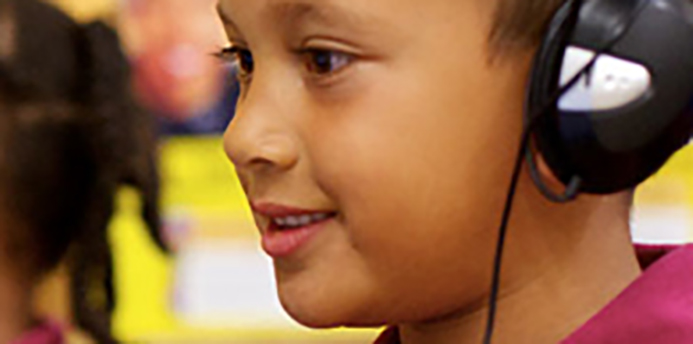KIPP is proof you really can make a difference.
Support just one of this charter school system’s students, and you launch them on a much better path through life. KIPP, the Knowledge is Power Program, is a national network of free, open-enrollment college preparatory programs and a philanthropic wunderkind. Founded in 1994 by Mike Feinberg and David Levin, two Teach For America corps members, the program has grown from just two middle schools in 1995 to nearly 150 schools in 20 states and Washington, D.C.
Operating largely on grants and partnerships, including a generous partnership with the Doris and Donald Fisher Fund (founders of Gap Inc.), the Bill and Melinda Gates Foundation and the Walton Family Foundation, KIPP is the largest network of such schools for students in underserved communities across the country, with more than 50,000 attendees and more than 13,000 alumni.
Levin and Feinberg envisioned KIPP charter schools as programs for building a better tomorrow, and the programs operate so effectively that they offer a model for all public schools. The principles that govern a KIPP charter school transcend socio-economic boundaries, providing all children with the knowledge, skills, character and habits necessary to succeed in college and beyond.
All KIPP schools share a set of core operating principles, collectively known as the Five Pillars. These fundamental tenets, paired with a focus on leadership, sharing and excellence in teaching, form KIPP’s effective educational approach.
- All students can and will learn. With no imposed selection criteria, KIPP welcomes all students to enroll – and succeed – in these public schools. Enrollment is voluntary, with students and their families committing to success.
- College graduation is the goal. College culture, in the form of regalia and spiritwear, is on display throughout each school, and students receive college guidance as early as kindergarten.
- Character is as important as academics. Key traits are explicitly emphasized and developed: social intelligence, self-control, zest, optimism, curiosity, grit and gratitude.
- The schools hire, nurture and empower visionary leaders and excellent teachers.
- KIPP fosters a culture of continuous learning.
- Data informs school improvement decisions. Rigorous self-assessment through reliable measurements contributes to continuous improvement.
A recent visit to Chicago’s KIPP Create Middle School demonstrated the program’s application of these principles in very unique ways. Enthusiasm, discipline, focus, animated communication and playful curriculum seem the norm in the classrooms filled with neatly uniformed students.
Youthful, engaged teachers radiate care as they teach a standardized curriculum. KIPP Chicago Executive Director April Goble noted that the fifth grade multiplication game we observed is essentially identical to one she taught 11 years ago, when she started teaching for KIPP in New York City.
Goble started her career in education as a Teach For America teacher in one of Washington, D.C.’s toughest schools. “As a first-generation college student, I started with TFA to give back,” she says. “But I fell in love with teaching and couldn’t walk away from the [intractable] problems I saw.”
Nothing is as compelling, though, as success. “I was skeptical of KIPP until I saw its effect on my former students,” Goble says. After a stint with KIPP in New York City, Goble moved to Chicago to grow the KIPP network here.
KIPP recently opened its fourth Chicago school, putting it on target to reach its goal of 12 area schools by 2020.
KIPP Chicago By the Numbers
- The network includes 37 elementary schools, 70 middle schools and 18 high schools.
- KIPP expects to serve 60,000 children by 2015.
- By the end of eighth grade, 96 percent of KIPP classes outperform their local districts in reading; 92 percent do so in math.
- 96 percent of KIPP Chicago alumni have graduated high school, compared with an anticipated 63 percent of Chicago Public Schools students.
- 92 percent of KIPPsters have matriculated to college.
- Only 6 of every 100 ninth grade students in Chicago earn a college degree within five years of high school graduation.
Upcoming Events
KIPP is hosting Talk Character at the Winnetka Community House Tuesday, Oct. 22 at 9 a.m. to raise awareness of its mission, emphasizing its principles, character work, successes and opportunities. For more information or to RSVP for this free event, please visit their website.
Make It Better is proud to be the Media Sponsor of this event.

